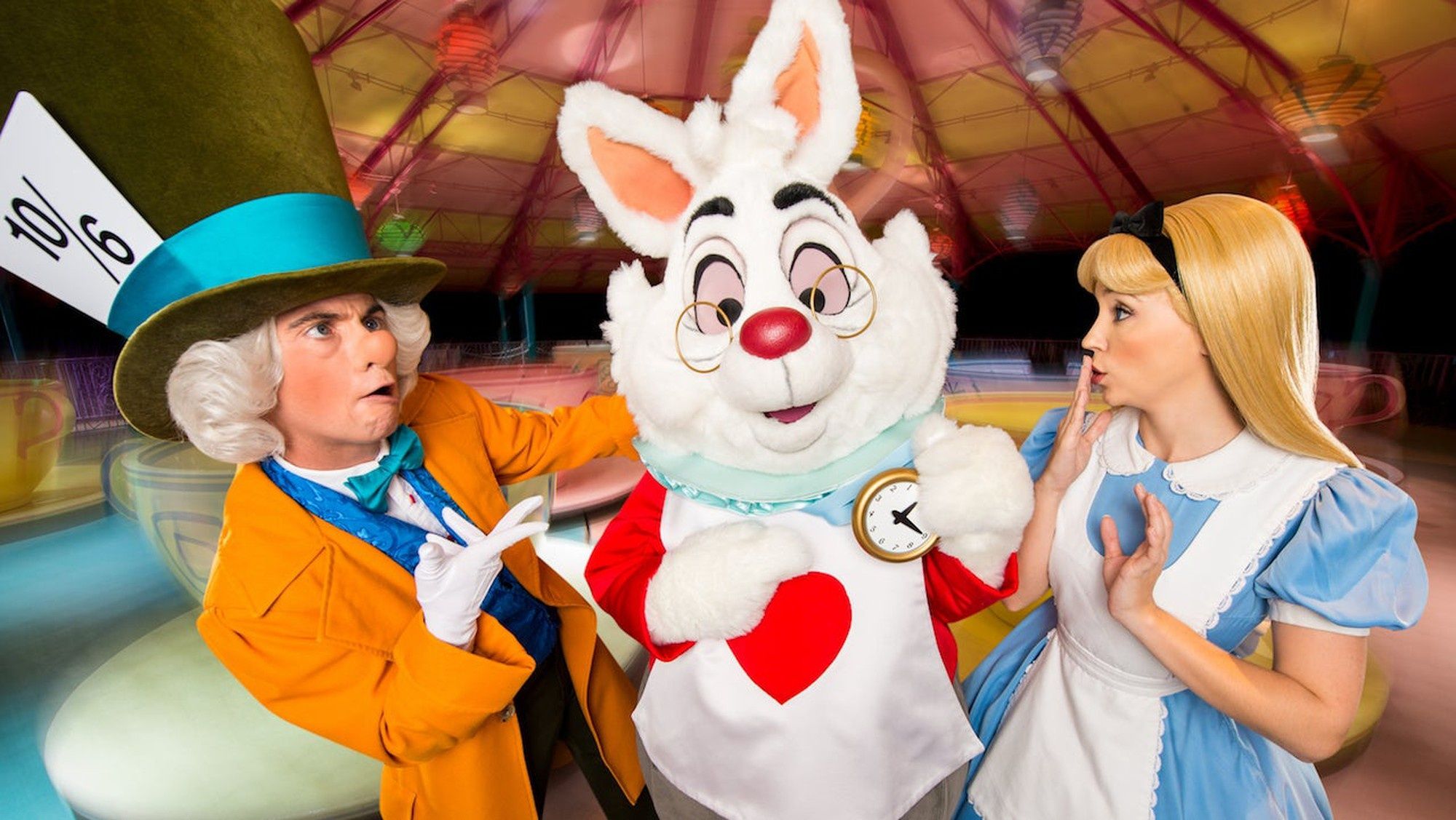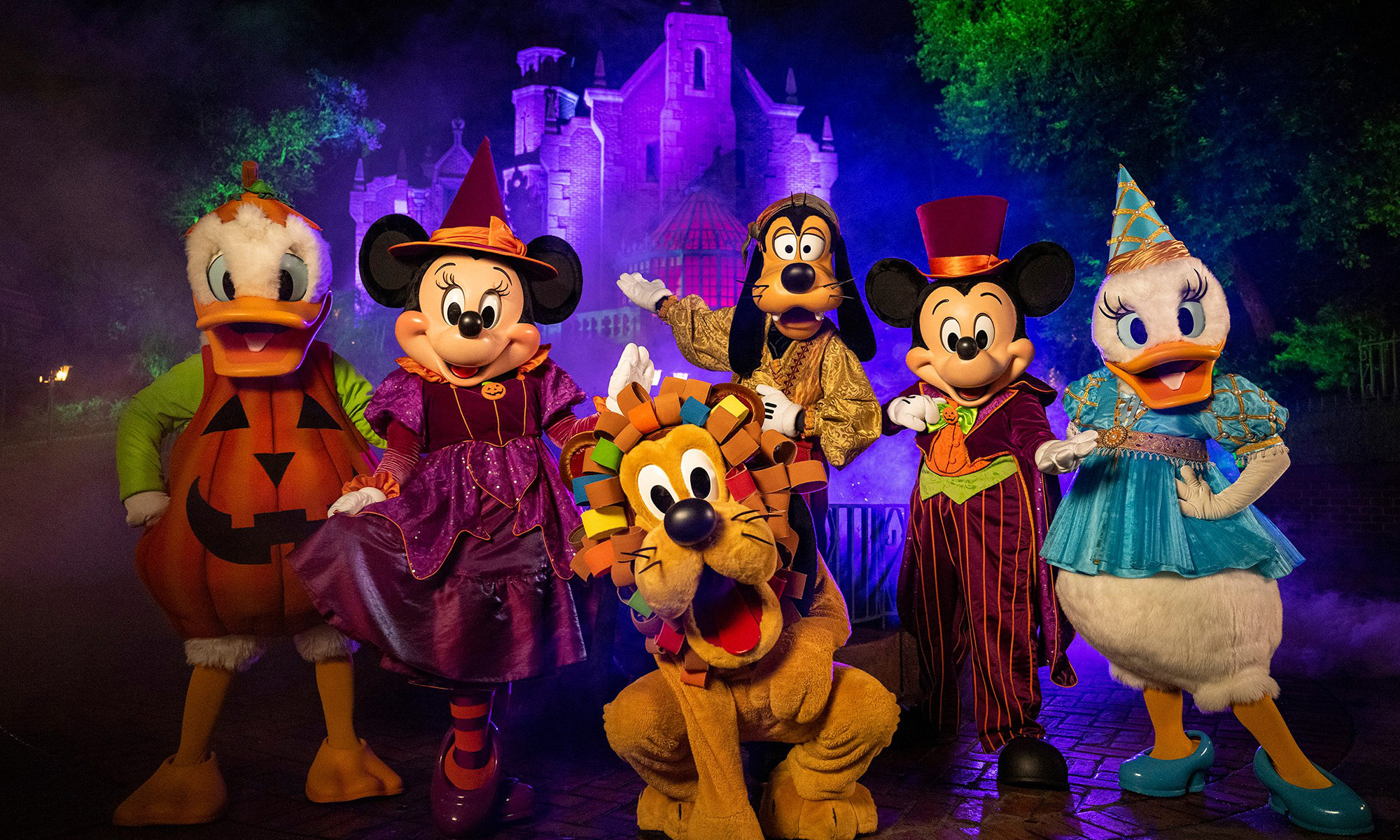Every day, Wall Street analysts upgrade some stocks, downgrade others, and "initiate coverage" on a few more. But do these analysts even know what they're talking about? Today, we're taking one high-profile Wall Street pick and putting it under the microscope...
After beating the market for 12 months running, shares of Walt Disney (DIS 0.11%) are poised to blow away expectations again, and keep on beating the market for some time to come. This, in a nutshell, is what the analysts at Imperial Capital had to say this morning when they upgraded Disney stock to outperform and assigned the entertainment conglomerate's shares a price target of $129.
Here's what you need to know.

Perk up your ears, folks, because this analyst just upgraded the House of Mouse. Image source: Getty Images.
A transitional year
Disney had a fantastic year in 2018, with sales rising 8% and adjusted earnings per share up 24%. (Word to the wise: Although many companies give adjusted earnings figures to make their GAAP results look better than they really are, in Disney's case, adjusted earnings per share is a figure used to keep investors to get too excited about the fact that Disney's actual GAAP earnings in 2018 were up...47%.)
Despite these supercalifragilistic financial results, Disney stock is actually up only a pretty modest 8% over the past 12 months. The reason for this is the fact that the company doesn't expect 2019 to be quite as expialidocious as 2018. To cite just one example, when discussing Disney's results for 2018, CFO Christine McCarthy noted that coming off of "the best year in our Studio's history," the company is likely to hit a pothole in Q1, with "operating income from our theatrical business in Q1 ... down as much as $600 million versus 2018."
As Imperial Capital notes in its write-up today (covered by StreetInsider.com), Wall Street is bracing itself for the bump, and estimating Disney's GAAP earnings will decline by as much as 15% in the "transitional" fiscal year 2019. (S&P Global Market Intelligence estimates predict GAAP earnings will fall from $8.36 in 2018 to just $7.08 in 2018.)
A transition, expected
At the same time, however, Imperial commends Disney for telegraphing its expectations so clearly, arguing that Wall Street has, as a result, "already fully discounted" the lower earnings from the company's transition. Therefore, "barring any sort of 'black swan' event," argues the analyst, Disney shares should be rewarded from new business initiatives to get earnings growing again "in fairly short order."
And what are these new initiatives?
An abundance of catalysts
Take your pick -- because Imperial Capital actually has a sizable list of reasons to be optimistic about Disney stock:
- A strong film slate of Disney, Marvel, Pixar, and Star Wars films, along with new films from the recent Fox acquisition coming out in 2019.
- Two new Stars Wars-themed lands, dubbed Galaxy's Edge, opening at Disney World and Disneyland in 2019.
- Three separate over-the-top (OTT) streaming video services -- ESPN+, Disney+, and Hulu (of which Disney will soon own 60%) -- providing Disney with "substantial pricing power" even among cord-cutters.
- And the likely resumption of stock buybacks.
Given all the positives, Imperial believes there is "no reason why DIS cannot re-establish a trading multiple in the high-teens, specifically 18.0x our F2020 pro forma EPS estimate of $7.15, inclusive of equity issuance, as that is a typical PE/G-of-one multiple coming out of transitional years such as this one."
What it means to investors
A couple things are worth pointing out here. First, Imperial's prediction that Disney will earn $7.15 pro forma in fiscal 2020 appears to call for a second straight year of declining profits at the House of Mouse. (Pro forma profits are expected to fall to $7.21 per share in 2019.) However, Imperial's 2020 estimate is actually a bit below the consensus prediction on Wall Street, where S&P Global shows most analysts predicting stronger earnings of $7.42 per share (GAAP) and $7.49 per share (pro forma) in 2020.
As such, Imperial's argument that Disney is worth $129 per share (a 14% profit from today's price) might actually turn out to be conservative.
That being said, investors need to be aware that even bearing in mind all the positives, buying Disney stock is not without risk. For example, when valued on trailing earnings, Disney may look cheap at roughly 13.3 times the profit it earned in 2018. However, the stock is arguably a bit more expensive than that. The company's debt load is $16.7 billion net of cash for one thing, a fact that isn't captured in its P/E. Disney's free cash flow also looks a bit weak at just $9.8 billion in cash profit generated last year, versus GAAP earnings of $12.6 billion.
Additionally, long-term earnings growth estimates for the company don't seem to be quite as robust as what Imperial is calling for. According to analyst estimates collated by S&P Global, the five-year expected annual earnings growth rate for Disney is only about 9% -- or roughly half what Imperial seems to be modeling when it says the stock, costing 18 times 2020 earnings, sells for "PE/G-of-one multiple."
Granted, for a company as dominant as Disney, it's probably worth taking on a bit of risk -- especially in light of all the catalysts Imperial highlights. Just be aware that the risks are there before buying.






